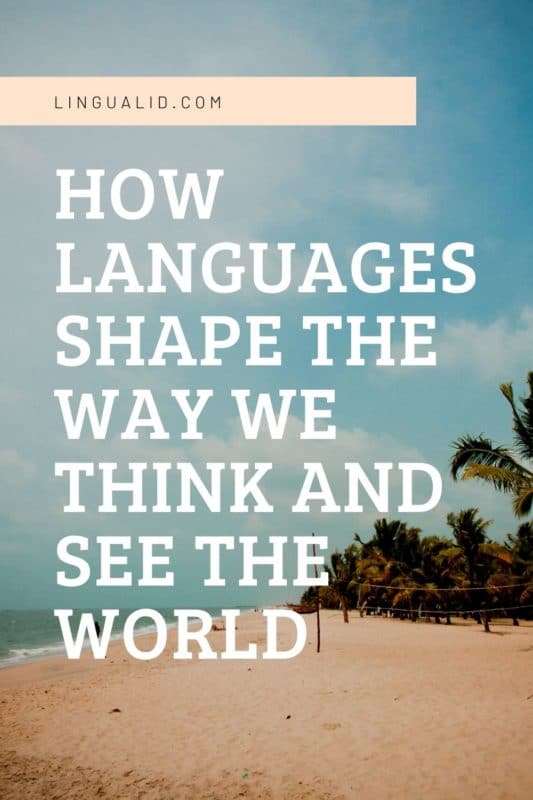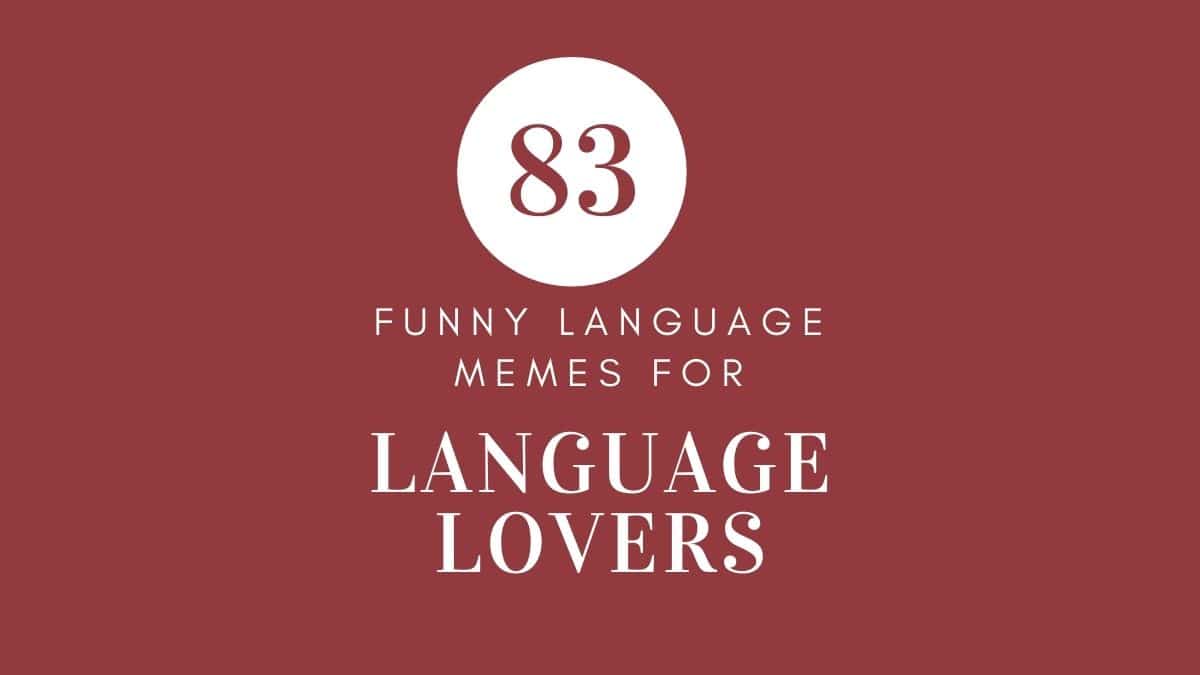There are thousands of languages spoken around the globe, all having different structures, sounds, and grammar rules, but how do they shape the way we think? In this post, I will give you some examples and also talk about how a native language influences your English.

How does our language shape the way we think?
If I present to you several pictures of someone and ask you to arrange them chronologically you might do that from left to right if you are an English speaker, while you might do that from right to left if you are an Arabic or Hebrew speaker for example.
Small things in languages that reflect how we express ourselves. One of my favorites is that in English someone would say “I can’t sing” like they were incapable of it. While in Portuguese, we would say “Eu não sei cantar” (I don’t know how to sing) in a way that there’s always a possibility of learning it someday in the future.
I want to meet the culture?! I am with hunger?!
Yes, you’ve read it right, I’m with hunger! you may hear that from a Portuguese-speaking friend that is new to English, whereas what he wanted to say is “I’m hungry” but in Portuguese it literally is “Eu estou com fome“. Let’s see how this sentence is expressed in some languages: Spanish “tengo hambre” (I have hunger), French “j’ai faim” (I have hunger), Arabic “أنا جائع” (I’m hungry), Portuguese “Eu estou com fome” ( I’m with hunger), Did you notice how things are different?
Same reaction I did when a friend of mine said “I want to meet the culture”, you guess it right! In her language (Spanish) “conocer” means both “to meet” and “to know“. Now, how to say: “to know” in Spanish? you said “conocer” didn’t you? Well there are two words to say it: “conocer” and “saber” saber is used when talking about facts, information, how to do something. While conocer is for people, places, and things. Similar case with Portuguese “conhecer/saber” and French “connaître/savoir” for example. Isn’t that fantastic?
Don’t put the blame on me!
An English speaker would say “I broke the glass” while a Spanish speaker might say something like “The glass broke itself” So imagine two different people witnessing the same accident, but one remembers who did it as he keeps repeating it and the other just stated that it was an accident.
Comparing English and Dutch. In English, we might say “I drop” (litter for example). But in Dutch, we say “Ik laat vallen” which means ‘I let fall’. In English, we take responsibility for the action. “I drop” implies that dropping is something I actively participated in. In Dutch, we pass the buck. “I let litter fall” is like saying “The litter was going to fall anyway, I just did nothing to stop it.”
Spanish and Portuguese: to be and… to be?
It’s even more clear if you think about how the verb “to be” is divided in two verbs in languages like Spanish and Portuguese: one verb based on essence “ser” and one based on status “estar”. They change totally the meaning of what you’re saying, but in English, they are just the same so you aren’t able to express your idea totally.
Sometimes my Latino friends would say something like “I’m boring” while what they really wanted to say is “I’m bored”, how’s that? boring and bored are just one word in Spanish: “aburrido” (feminine aburrida) but how do they distinguish if they are bored or boring? “ser” and “estar“: Estoy aburrido (I’m bored) and Soy aburrido (I’m boring).
I love Arabic!
Arabic is a very poetic and logical language. Whenever I write an essay in Arabic, I automatically and unconsciously find myself shifting to using words that rhyme. At the same time almost in every conversation between two Arabs you will find a lot of general statements and sayings (also proverbs). We use sayings almost in every situation in our daily life.
Also from an educational viewpoint, you will find the students always trying to extract rules from inductive experiences. This might be also an act of nonarabic students, but believe me in Arabic language we tend into generalizing everything. Not to mention the grammar of Arabic. It’s complex, no doubt about it, but I believe it plays a huge role to lead Arabs to think that way. Also, if you learn Arabic, you would notice that many letters of the Arabic alphabet are written in three different forms depending on their position in the word.
The precision of German
I’ve just started learning German and as I pay attention to the details, something really grabbed my attention: Germans like to express themselves rather precisely. Unless they really love or hate something, you won’t hear them saying “Ich hasse” (I hate) or “Ich liebe” (I love). Instead, they add the little word “gern” to a verb to express what they like or enjoy. You’re likely to hear “ich helfe gern” (I gladly help) or “ich gehe gern” (I gladly go) but “lieben” is reserved for deeper expressions of love: “Ich liebe Emilia !”
Also, to express the fact that someone likes Pizza, a German would exactly say “ich esse gern Pizza” (I gladly eat Pizza) you know that some people like to take pictures of food more than eating it right? As a side note, it should come as no surprise that one of the most commonly heard German words is “genau“, which means ‘precisely’!
The beauty of linguistic diversity is that it reveals to us just how ingenious and how flexible the human mind is…Human minds have invented not one cognitive universe, but 7,000.
Lera Boroditsky
I explained to you how languages shape the way we think using some examples. I hope that would make you think how rich and diversified our world is, and also make you appreciate people’s effort to speak/learn your language and the way they enrich it with their beautiful sayings and accent.
Oualid Cheddadi is the founder of Lingualid, a platform that inspires independent language learners worldwide, regardless of the language they are learning. The name “Lingualid” is derived from the Portuguese word for “language,” “língua,” and the last three letters of Oualid’s name, “Lid.”



